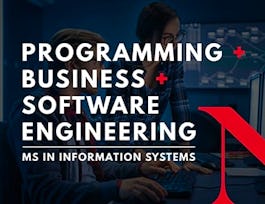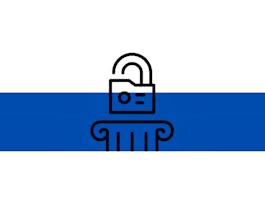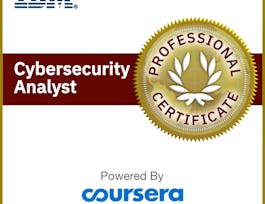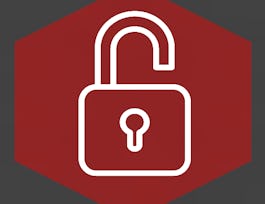- Explore
- Information Technology
- Security
Security
Earn Your Degree
Most Popular Courses
Top Rated Courses
Beginner Security Courses
Launch Your Career
Most Popular Certificates
IT and Cybersecurity for Business Leaders
Frequently Asked Questions about Security
Information security, also known as information technology (IT) security, is the implementation and maintenance of systems to protect information or data. This includes responsibility for the security of data in all forms, including not only internet-connected computers but paper files, other types of physical media, and data stored offline.
While cybersecurity is a subset of this field, it is focused primarily on the security of electronic data and computer technologies from threats via the internet. At the same time, many information security specialists also deal with common cybersecurity issues such as ransomware, spyware, viruses, and malware.
Information security professionals need a combination of skills. On one hand, it's important to possess a framework for assessing and managing threats from wherever they originate, including a background in risk management, information security policies and procedures, data analysis, and good communications skills to present your findings and recommendations.
At the same time, IT security specialists need a strong set of cybersecurity skills, since that will inevitably be a major area of work. That includes capabilities in computer programming, intrusion detection, system log analysis, firewall and data encryption, malware prevention, and more.
In this fast-changing field, it's also important to always keep up to date on new trends as well as threats. Whether you're just starting in IT security or are a veteran in the field, you'll benefit from reading the latest data protection news, following cybersecurity legislation, and keeping abreast of emerging best practices and techniques.
Information security expertise is extremely valuable, as it is seen as essential protection against potentially existential risks for more and more companies. For example, according to the Bureau of Labor Statistics, the median annual salary for information security analysts was $98,350 in 2018, and these jobs are expected to grow over 30% over the next decade - much faster than the average for all jobs. Additional jobs for information security experts include network security engineers, information security managers, and information system security officers.
Online courses are a great way to learn about information security, thanks to a great combination of affordability and flexibility to pursue your education on your own time from anywhere in the world. Individual information security courses are available on Coursera covering a wide range of topics including computer security and systems management, operating system security, cyber security fundamentals, blockchain foundations, network security, and secure coding practices.
Students can also learn about information security from short Guided Projects or in the context of computer science bachelors and masters degrees from top-ranked colleges like University of Illinois, Arizona State University, and Imperial College London.
The type of skills and experience that you might need to already have before starting to learn security would include the basics of a good education, like reading comprehension, complex problem solving, critical thinking, active listening, and good communication ability. Once you have this foundation of skills, you can get more specific with your computer security experience. You may try to gain experience learning or working in areas of cloud networks, computer systems networking, LAN/WAN management, and other specific areas. Having a good basis of understanding in these areas will help you to learn more about security in technology practices.
Some of the topics that you can study that are related to security include information systems, cybersecurity, risk assessment, and access control, among others. The issue of computer security in our web-connected world is one of fundamental importance. As such, it would help you to study topics like data breaches, password security, privacy, malware, and virus protection, in order to more completely learn the key aspects of security.
Common career paths for someone in security may originate in junior roles working in network administration, web development, computer programming, and data science. From here, a common career path might lead to running network systems, managing network infrastructure, or taking the senior lead on cloud network security. All of these careers are critical to sustaining a tightly controlled, data-secure environment for an organization.
Learning security may be right for you if you are excited about computers, networks, data, privacy, and hoping to build a career in computer security. There are many good career opportunities for someone interested in learning security, like IT security analyst, cybersecurity analyst, systems engineer, risk assessment manager, and similar roles. As you gain more background and experience in security for networks, you may even find additional career opportunities in security that may emerge in developing fields in the blockchain, like cryptography, disaster recovery, and cloud security. If this is interesting to you, then learning security may be a good fit for you.
Online Security courses offer a convenient and flexible way to enhance your existing knowledge or learn new Security skills. With a wide range of Security classes, you can conveniently learn at your own pace to advance your Security career.
When looking to enhance your workforce's skills in Security, it's crucial to select a course that aligns with their current abilities and learning objectives. Our Skills Dashboard is an invaluable tool for identifying skill gaps and choosing the most appropriate course for effective upskilling. For a comprehensive understanding of how our courses can benefit your employees, explore the enterprise solutions we offer. Discover more about our tailored programs at Coursera for Business here.







































































































